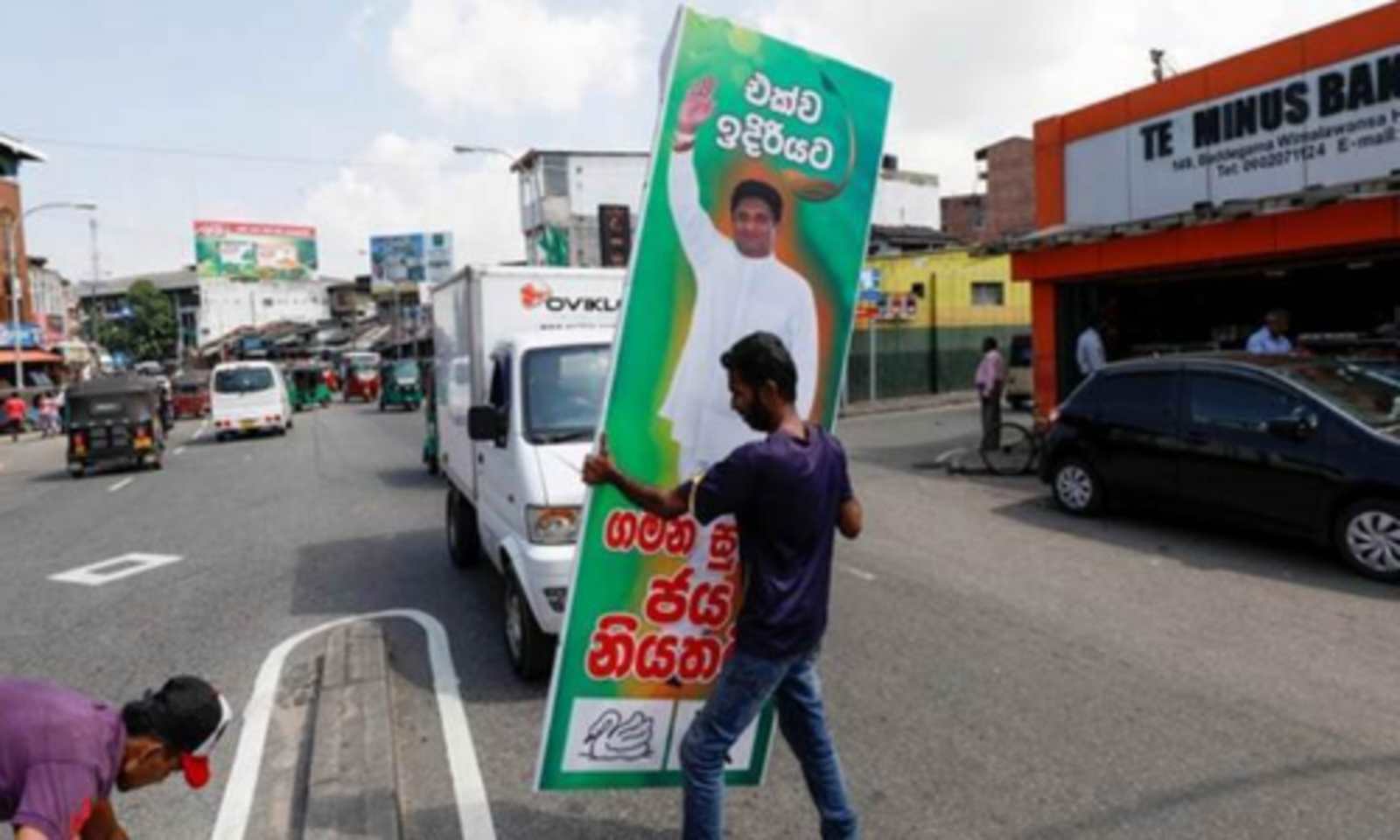COLOMBO: Sri Lanka’s main opposition candidate Gotabaya Rajapaksa on Sunday took an unassailable lead over the ruling party candidate Sajith Premadasa in the hotly contested election that would decide the future course of the country amidst security challenges following the Easter Sunday bombings.
Rajapaksa was heading for a clear cut win, result indicators showed.
The 70-year-old former wartime defence secretary, the younger brother of former president Mahinda Rajapaksa, has swept the poll with over 60 per cent margins in most Sinhala majority districts while his 52-year-old rival Premadasa has performed well in the minority Tamil-dominated north and east provinces.
Premadasa has garnered over 80 per cent of the vote in Tamil areas, reducing Rajapaksa to less than 5 per cent in some areas in the north.
In the Muslim-dominated Muttur in the east, Premadasa was a clear winner with 90 per cent of the votes polled.
The poll on Saturday brought curtains down on a campaign which was kick started on October 7 with the handing over of nominations. A record number of 35 candidates contested with 15.9 million of the island’s 21 million population eligible to vote.
The results trend shows that Rajapaksa is set to win outright at least 16 of the total of 22 electoral districts which went to polls.
Rajapaksa’s victory will mark the return of the family to the pinnacle of power in the island after they were surprisingly ousted in the 2015 presidential poll.
In the result declared so far from the sole polling division in the south of the country, Rajapaksa has won 65 per cent against Premadasa’s 28 per cent.
Premadasa has won three polling divisions, Jaffna, Nallur and Kayts in the Tamil region of Jaffna district by 85, 86 and 69 per cent against Rajapaksa’s six, five and 17 per cent.
Postal votes are cast in advance by officials drafted for election duty on polling days.
The remaining candidates who contested the election were far behind in numbers.
Sri Lankans voted on Saturday to choose a successor to President Maithripala Sirisena amid multiple poll-related incidents, including an attack on the minority Muslim voters.
As many as 12,845 polling stations were set up across the country.
This poll will make record as the election with the largest number of polling stations and the longest 26-inch ballot paper.
According to observers, with pro-China Rajapaksa in the fray, India is keeping a close watch on the election results as its outcome will have a bearing on the country’s presence in the Indian Ocean region where Beijing is increasingly making its inroads.
China, which has acquired Sri Lanka’s Hambantota port in 2017 as a debt swap, has been ramping up its ties with the island nation and expanded its naval presence in the Indian Ocean with an established logistics base in Djibouti
China in July gifted a warship to Sri Lanka, in a growing sign of its deepening military cooperation with the strategically located island nation in the Indian Ocean.
The Lanka election took place nearly seven months after homegrown radicals pledging loyalty to the Islamic State terror group detonated suicide bombs at three churches and three posh hotels, killing 269 people, seriously hitting the tourism industry, one of the main forex earning sectors of the country.
The candidate who obtains over 50 per cent of the votes will win the presidency. The ballot also allows voters to choose their three top candidates in order of preference, which will determine the winner if no candidate secures over half the first place votes.
Those preferences will be used to tally votes for the top two candidates to decide the winner. Such a process has not happened in previous elections because one candidate has always crossed the 50 per cent mark.
Premadasa, the ruling United National party (UNP) candidate, banked on his ‘man of the commoner’ image – a legacy of his father Ranasinghe Premadasa, the country’s president between 1989 and 1993 until the LTTE assassinated him in 1993.
Premadasa senior was considered as the “man of the poor”.
The Rajapaska senior’s legacy of ending the Tamil separatist war has made him the darling of the Sinhala Buddhist majority. Gotabhaya was his top defence ministry official who supervised the military operations against the LTTE. While doing so, he acquired the reputation of a ruthlessly efficient administrator. (AGENCIES)


